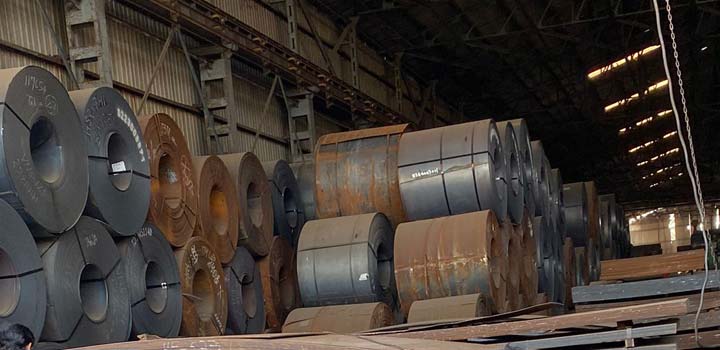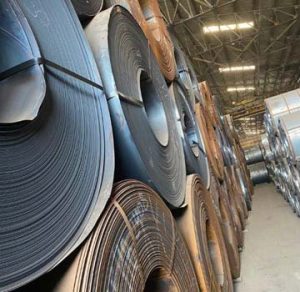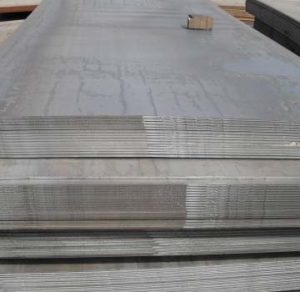
The chemical composition of SPFH590 is crucial in determining its overall performance and suitability for various applications. The elements present in this material significantly influence its mechanical properties, making it ideal for high-strength structural uses. Adhering to strict composition standards ensures the material meets required quality and performance criteria, guaranteeing that it delivers the desired characteristics.
Table of contents
- SPFH590 chemical composition
- SPFH 590 mechanical properties
- SPFH590 steel equivalent
- Thermal properties of S420MC material
- Electrical properties of E420D grade
- JIS G 3134 SPFH590 Physical Properties
- DIN 1.0980 Density
- Material testing of JIS G3134 grade SPFH590
- HR50F45 grade Surface Treatment
- Steel grade SPFH 590 Heat Treatment
- Max service temperature of FeE420 material
- Melting point of S420MC material
- JIS G 3134 SPFH590 Shear modulus and Poisson’s ratio
SPFH590 Chemical Composition
SPFH 590 Mechanical Properties
| Yield Strength Rp0.2 (MPa) |
Impact KV/Ku (J) |
Tensile Strength Rm (MPa) |
Brinell hardness (HBW) | Elongation A (%) |
|---|---|---|---|---|
| 854 (≥) | 12 | 447 (≥) | 421 | 43 |
JIS G 3134 SPFH590 plate is commonly used in automobile frames. Refer to SPFH590 Steel Equivalent Material for more details.
This high-strength material is widely used in automotive applications due to its excellent load-bearing capabilities and structural integrity. Its strength allows for the design of lighter yet durable frames, which is essential for modern vehicle efficiency. Engineers often choose SPFH590 because it provides a balance between weight reduction and robust performance, making it ideal for complex structural designs.
SPFH590 Steel Equivalent
| EU EN |
France AFNOR |
Japan JIS |
England BS |
Italy UNI |
USA – |
Inter ISO |
Germany DIN, WNr |
Sweden SS |
|---|---|---|---|---|---|---|---|---|
| S420MC (1.0980) | E420D | SPFH590 | HR50F45 | Fe420TM | Gr.60 | FeE420 | QStE420TM | 2652 |
Thermal Properties of S420MC Material
| Property | Value |
|---|---|
| Coefficient of thermal expansion | 1.32E-5 – 1.38E-5 1/K |
| Specific heat capacity | 465 J/(kg·K) |
| Thermal conductivity | 25 – 93 W/(m·K) |
E420D Grade has excellent tensile strength. View Electrical properties of FeE420 material for more details.
Understanding the electrical properties of a material is essential, especially when it's used in environments where electrical currents are involved. These properties determine how much current the material can handle without degrading or causing safety issues. Proper knowledge helps in selecting the right material for specific applications.
Electrical Properties of E420D Grade
| Electrical properties | 1.43E-7 – 1.74E-7 Ω·m |
|---|
DIN 1.0980 material contains up to 0.5% silicon. Check Physical Properties of HR50F45 for more information.
The physical properties of materials like DIN 1.0980 play a key role in determining their suitability for different engineering applications. Factors such as thermal expansion, specific heat, and thermal conductivity affect how the material performs under varying conditions. This makes it important for engineers to understand these properties during the design phase.
JIS G 3134 SPFH590 Physical Properties
| Modulus of elasticity (GPa) |
Specific thermal capacity (J/kg·°C) |
|---|---|
| 327 | 211 |
JIS G3134 grade SPFH590 exhibits good welding properties. Refer to SPFH590 grade Density for more details.
Density is an important factor when choosing materials for structural applications. It affects the weight and load-bearing capacity of the final product. A precise understanding of density helps in estimating costs, optimizing material usage, and ensuring safe and efficient manufacturing processes.
DIN 1.0980 Density
| Density | 7.8 – 7.9 g/cm³ |
|---|
Material Testing of JIS G3134 Grade SPFH590
- Impact Tests
- Hardness Tests
- Tensile Tests
- Flexure Tests
- Deformation Tests
- Fatigue And Fracture Mechanics Tests
HR50F45 Grade Surface Treatment

Pickling

Oiled
Check Heat Treatment of SPFH590 JIS G3134 Material
Various tests are conducted to ensure the quality and reliability of SPFH590. These tests help in evaluating the material's performance under different conditions and provide insights into its suitability for specific applications. Understanding the purpose of each test enables better decision-making during the material selection process.
- Impact test is done to check toughness at different temperatures.
- Hardness test is done to check wear resistance and surface strength.
- Tensile test is done to check the ability to resist stretching forces.
- Flexure test is done to assess bending and load-bearing capability without cracking.
- Deformation test checks the material's flexibility and resistance to failure under stress.
- Fatigue and Fracture Mechanics Tests evaluate structural integrity, crack initiation, and growth behavior.
Steel Grade SPFH 590 Heat Treatment
| Heat Treatment | 1198°C – 1875°C |
|---|
Max Service Temperature of FeE420 Material
| Max service temperature | 498°C |
|---|
Melting Point of S420MC Material
| Melting point | 1480 – 1526 °C |
|---|
JIS G 3134 SPFH590 Shear Modulus and Poisson’s Ratio
| Shear modulus | 82 GPa |
|---|---|
| Poisson’s ratio | 0.29 |
- Compatible with thread-less bike 1-1/8inch 28.6mm fork flat tube frame used.
- The stem headset is universal for MTB, road bike and fixed gear.
- Made of ultralight aluminium with forged and CNC machined, the headset is anti-rust, sturdy and durable.
- It's simple and fast to install, good replacement for your bike, make riding easier and more enjoyable.
External Cup Headsets,Threaded Bicycle Headsets,External Cup Bicycle Headsets,Easy Installation Cup
Shenzhen Gineyea Technology Co., LTD. , https://www.gineyea.com
